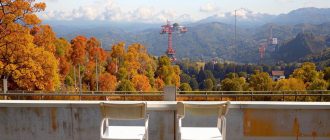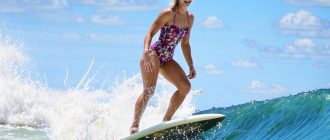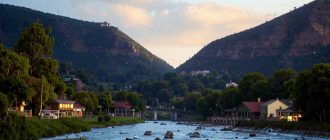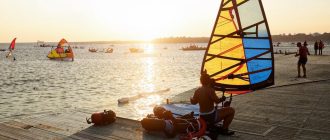
President of Pro-Vision, author of the Vinogradov.story community
It would seem, why go there in summer? But the paradox of the Russian North is its independence from seasons and stereotypes. In the summer months it is especially beautiful, deserted and free: the tundra shines yellow, rivers descend by waterfalls into the harsh polar seas, and the sun announces a new day, barely touching the horizon line. Where to go and what to do here in the coming months?
Arkhangelsk and Severodvinsk
Summer in Pomorie means long walks along the embankment of the Northern Dvina and the sandy beach of the White Sea, creative evenings on the pedestrian Chumbarova-Luchinsky Avenue, pomakukha and kozuli, trips to Solovki and Malye Korely.
It is worth staying longer in the latter to appreciate the luxurious square meters of the local hut, which gives off silver in the restrained northern sun.
Russian wooden architecture is interesting on its own, but in conjunction with mesmerizing nature and to the sound of bell ringing it is perceived somehow especially deeply and emotionally.

Spaso-Preobrazhensky Solovetsky Monastery
Karelia
Unlike its northern neighbors, Karelia is quite capable of presenting travelers with almost southern heat. Rivers and lakes save: there are enough of them in Karelia for everyone.
The navigable Ladoga will offer water walks along rocky skerries and to Valaam, Onega – to the ancient Transfiguration Church on Kizhi Island, and the rivers Shuya and Uksunjoki – mountains of splashes during rafting and special field romance at parking lots.
The main thing in summer in Karelia is to stay away from popular tourist locations, giving preference to half-forgotten and little-known corners.

Karelia
Norilsk, Dudinka and Taymyr
At first glance, Norilsk may seem like a typical industrial taiga center where almost nothing happens. But it is worth putting unnecessary skepticism out of the brackets, as one can see things, events and phenomena that are quite unique for central Russia.
The abandoned “old town” built on stilts in permafrost, the drama theater where Zhzhyonov and Smoktunovsky were applauded, and the neoclassical development of Leninsky Prospekt.
But the most incredible things begin outside the city limits: with an experienced guide you can not only drive to the Krasniye Kamni Gorge, but also, following the advice from the show “Show Me the North” on the “Klyuch” TV channel, look into the “neighboring” Dudinka or a date with the mammoth Zhenya in the Taimyr Museum.

The Khoisi River on the Putorana Plateau (Norilsk)
Chukotka
In Chukotka you will not find a riot of colors: the beauty of these places is in restraint and simplicity. Perhaps that’s why the names of all local locations are poetic, as if found on the pages of adventure novels: Provideniya Bay, Kitovaya Alley or, for example, Elgygygytgyn.
Most routes in Chukotka start in Anadyr, pass through Wrangel Island National Park and Naukan, the ancient capital of the Eskimos on Cape Dezhnev, and return to Anadyr.
If you are lucky with the weather, you will also have a chance to visit the village of Lavrentiya, where Russians, Chukchi and Eskimos peacefully neighbor and where a local history museum is open.

Provideniya settlement
Murmansk, Teriberka and the Kola Peninsula
Washed by the Barents Sea and the White Sea, the Kola Peninsula is the last available “land” before the vast and dangerous Arctic Ocean. Hence its absolutely unique nature and a way of life incomprehensible to many people: in the tundra, on the hills, with the nuclear fleet at its side and sea walks with whales.
At the same time, the mood in real settlements on the Kola Peninsula has little in common with Zvyaginov’s sensational Leviathan. Life here flows in a measured but not dull way, and people are kind and responsive, albeit a bit wordy.
It is best to plan a route around the peninsula from south to north. Take a photo at the Polar Circle stele, look into the Khibiny and Lovozero tundras to get to the ocean – to Teriberka or Rybachy Peninsula.

Barents Sea (Kola Peninsula)






